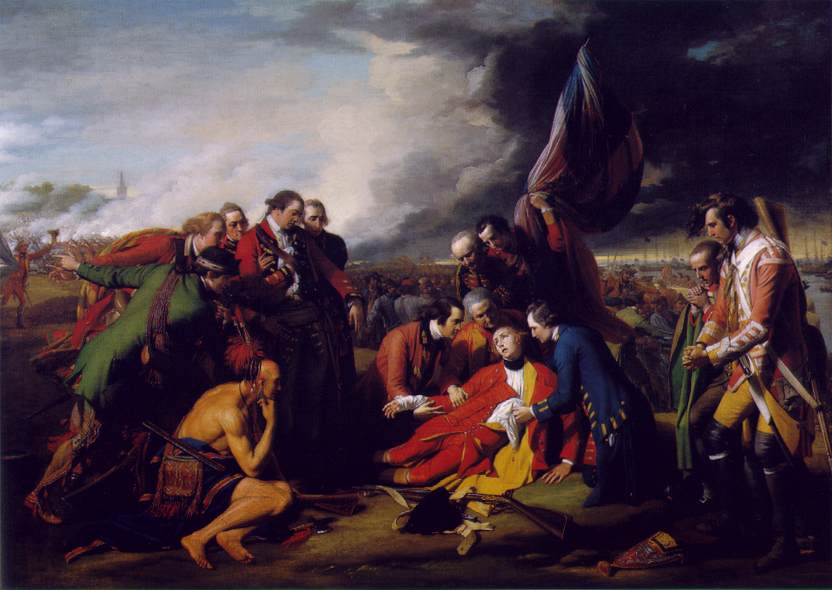Benjamin West’s “Death of General Wolfe”
On this date in 1759 General James Wolfe began the siege of Quebec which ended with his victory — and death — in the Battle of the Plains of Abraham.
Frye on Canada and Quebec:
Canadians, as I have implied, have a highly developed sense of irony, but even so, de Gaulle’s monumental gaffe of 1967, “vive le Quebec libre,” is one of the great ironic remarks in Canadian history, because it was hailing from the emergence of precisely the force that Quebec had really got free from. For the Quiet Revolution was as impressive an achievement of imaginative freedom as the contemporary world can show: freedom not so much from the clerical domination or corrupt politics as from the burden of tradition. The whole je me souviens complex in French-Canada, the anxiety of resiting change, the strong emotionalism which was, as emotion by itself always is, geared to the past: this was what Quebec had shaken off to such an astonishing degree. It was accompanied, naturally enough, by intense anti-English and separatist feelings, which among the more confused took the form that de Gaulle was interested in, a French neo-colonialism. This last is dead already: separatism is still a strong force, and will doubtless remain one for some time, but one gets the feeling that it is being inexorably being bypassed by history, and that even if it achieves its aims it will do so in a historical vacuum. I begin with French Canada because it seems to me that the decisive cultural event in English Canada during the past fifteen years has been the impact of French Canada and its new sense of identity. After so long and so obsessive preoccupation with the same subject, it took the Quiet Revolution to create a feeling of identity in English Canada, and to make cultural nationalism, if that is the best phrase, a genuine force in the country even a bigger and more significant one than economic nationalism, which is, as Mr. Mayo notes, mainly a Central Canada movement. (“Conclusion to the Second Edition of Literary History of Canada, CW 12, 450-1)

